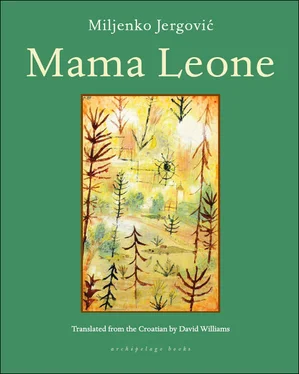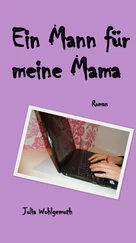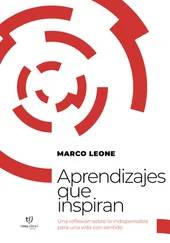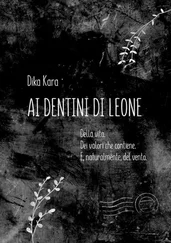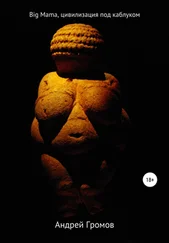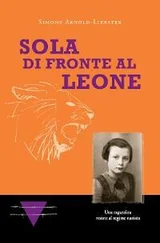I turn to the operator: I’m good, how are you? He almost swallows the microphone: he’s good, how is she? I repeat, he’s good how is she? receiving you . And then again the cracking of ancient ships, the roar of the waves, the terror of the seamen: she’s good, what should she send him? I’m not too cool with about fifty people listening in on my conversation. I lean down and say to the operator send me newspapers and bacon! He quivers invisibly from the breath in his ear and continues have her send newspapers and bacon, I repeat, newspapers and bacon! The whole room bursts out laughing, probably about the newspapers, and the voice from the other side crackles she’s thinking of him and wants him to be careful! The time had come for the conversation to end. People were waiting in line, and I had one more sentence to say, one worth more than every silence, one that had to do the same thing as the hug in the Korčula mud. I was frozen in terror confronted by words, words, words that I could say, ones I didn’t have to say, words that seeped like sand from a smashed hourglass, like mercury on the wooden floor of a chemistry lab, like a little death growing inside me, the death of a tomato next to a water fountain. It was then I remembered it, the tomato, I’d thought it had died, but it hadn’t; it appeared one last time, falling from her hand, it came back to me, right here now as I sent my cry in the stormy night, because on the other side there’s no one anymore, there’s no me, no campground, no Korčula, no fight, no face turned to revulsion, a beautiful precious revulsion that is no more. . I didn’t move my lips down to the manly ear, nor did I whisper. I said in a loud voice, like we were really there, in her living room, alone because the general and his wife had gone to the seaside: I love you more than anything in the world! The operator turned to me. He saw my face for the first time ever. I’d always been at his back. He’ll probably never see me again. That you’ll say yourself , he whispered, taking the headphones off, me sitting down in his place. The hum was much louder in the headphones. I didn’t know where my words were going nor who was listening, the kind of waves they were being lost on or whether there was a momentary lull from which they might be clearly heard, as clearly as they would, just this once, be spoken: Nataša, I love you more than anything in the world!
The Jewish Community Center cried like people do after a good theater performance. Everyone cried, men and women. A single sentence made so many people cry. That sentence had a weight to it, but only for he who had said it and she who had heard it. At that very moment everyone else could’ve snoozed away or picked their noses, fired their machine guns, prayed to God, or spoken some commonplace truth, words to save the world, but instead they cried, probably because at that very moment they too were bidding farewell to their lives, another little death already eating at them. Today I don’t remember a single one of those crying faces.
I don’t remember the important moments, I forget them the second I say you have to remember this . Life would be long if I remembered more. I’ve forgotten almost everything. Except when I was running from the shoreline to the campground or being careful that Mom not say snout . Everything else is gone. Things that are gone divide into those I’ve managed to preserve in memory and those that have become a series of my little deaths. These deaths are like gray marks on an old map. Unless it’s another India, nobody actually knows what’s really there. I managed to preserve in memory the sentence I love you more than anything in the world , but I didn’t know how to love someone more than anything in the world, and I didn’t want to know that fear wasn’t the best ally to have in life. Nataša stayed in Belgrade for a time, then she went to Canada because I never got in touch again. I tried that I love you more than anything in the world at different times and it felt as banal as a ham radio operator translating words across waters and oceans, every I becoming he , every you becoming she . Or something like that. Whatever, no one ever cried again.
I turned on the radio a little while ago, God only knows the station, but it was playing “Mama Leone” so it definitely wasn’t one of ours. The scent of the sea, the scent of the pines, and the scent of olive oil rushed to me once more, all at the same time, as did everything those scents gave off. I don’t know what the song’s got to do with all this, but there’s definitely some connection, it’s from something I’ve forgotten, from one of those little deaths. I need to find a place for “Mama Leone” somewhere here, but I don’t know where or how because there’s no room left in the story I’m telling. There never was. In the meantime my mom has become a real grown-up mom, and I’ve become her son. Not some forbear. She doesn’t say snout anymore, but sometimes things sound like that.
That Day a Childhood Story Ended
That day a childhood story ended. His cough woke him up, his nose blocked, his cheeks and forehead on fire. He should have stayed in bed, just lain there and slept it off, but the devil wouldn’t let him be. He got dressed and went outside. It was raining, cold drops on hot skin, the bus taking forever to come. He thought about pneumonia and meningitis. He remembered every sickness he knew by name, and a few others he didn’t know anything about or his imagination had maybe dreamed up for the occasion. He was astonished to discover that he no longer feared a single disease in the world.
The bus was half empty. Where did all those people go, he thought, his head resting on the glass, banging against it the whole journey. He was reconciled to his fate for the day. Nobody was waiting for him, he wasn’t expecting anyone, and everything was like the first day, repeated for the thousandth time, just now he was more indifferent, sanguine even, the way a man should be who has never made any attempt to hold on to the things around him, never tried for any great happiness. To this very day he has been waiting on fortune’s call, which like the magnificent end of a war, with confetti, fireworks, and the dumbfounded embraces of lost loves, would return his life to its old rhythm, return to him these past six years spent in despair. This was how long Deda had lived in Ljubljana, a city he hadn’t actually chosen but had simply been the farthest he dared go, when at the beginning of April 1992, sensing the onset of war, he had left home. He’d packed a single suitcase, a handful of shirts, a few pairs of underwear, and a Walkman. He said his goodbyes to his mother, telling her that he’d be back in about two weeks, by which time he thought mobilization in the city would be over. At the station he bought a return ticket, sat down in the bus, opened a book, and started reading, never looking back. Two weeks later he was watching pictures of the city in flames on television. Mojca wiped her tears, he hugged her and told her Mocja, it’s nothing, it’ll all pass , and she collapsed in his arms, the inconsolable viewer of a cinematic melodrama. That summer Deda found a job in a planning office, and a few months after that he got Slovenian citizenship, but the whole time he lived in the belief that he’d be going home and that this transitional period would come and go like an annual vacation. Setting off to America, Canada, and Australia, friends passed through Ljubljana, he’d spend an evening with them and they’d all ask you planning on getting out of here? and Deda always answered no, I’ll go back . On parting he’d leave them his address and telephone number, and a letter or phone call would follow, but friends would inevitably disappear, some because Deda didn’t reply, others because they had gone forever and didn’t need anyone reminding them of what they had lost or left behind. Six years later Ljubljana wasn’t on the way to anywhere for anyone: those who had wanted to leave had left, those who had wanted to stay had stayed, and Deda was as distant to them as if he himself had gone to the ends of the earth. But he hadn’t gone anywhere or stayed anywhere; he wasn’t at home or abroad.
Читать дальше
